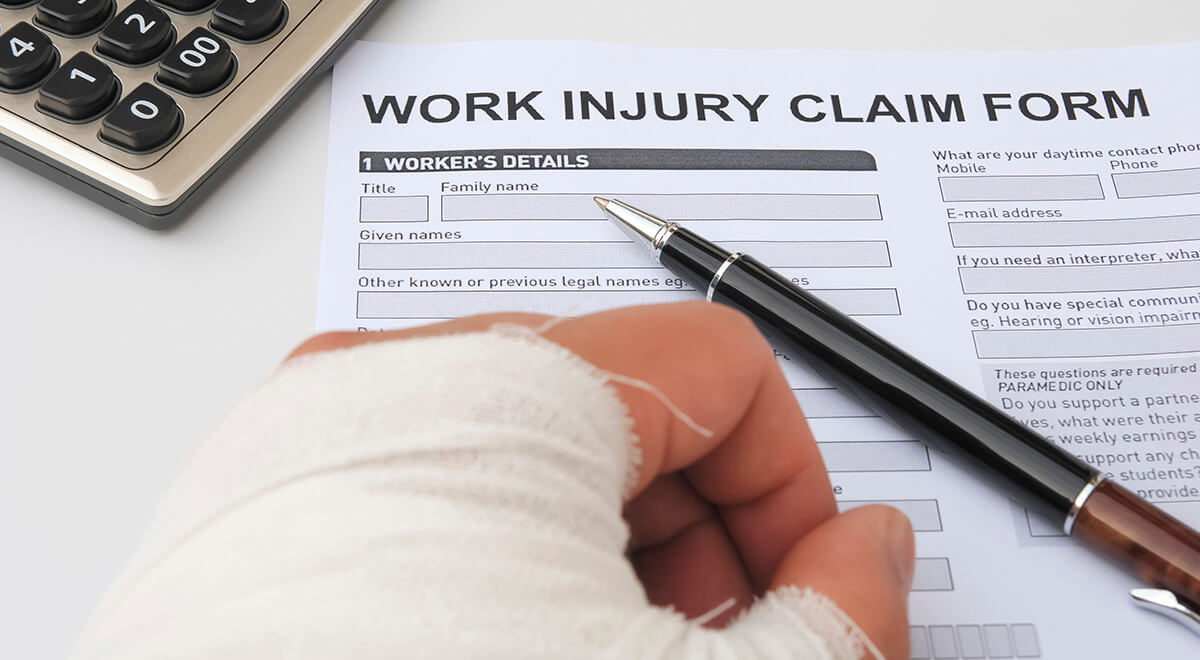Workers' compensation for workplace psychological injuries
You may be asking yourself, "what constitutes a psychological injury at work?"... Well, we're here to answer that question for you, as mental health claims is one of the largest sectors of all workers' compensations claims made in Australia.
Work-related psychological injuries are increasingly becoming a subject of concern in Australia. While physical injuries are often straightforward to identify and manage, psychological injuries can be more nuanced and complex. However, their impact on an individual's well-being and work performance can be just as devastating. This essay delves into what constitutes psychological injury in the Australian workplace, offering a comprehensive understanding of this critical issue.
Defining Psychological Injury
Psychological injury, often termed as "psychological trauma" or "mental injury," refers to a state of emotional or mental harm that results from extremely stressful or traumatic situations. It is an injury to the "mind" as opposed to the "body," affecting a person's ability to perform in the workplace adequately.
Types of Psychological Injuries
In the Australian work context, psychological injuries can take various forms, including but not limited to:
Anxiety Disorders
Extreme levels of stress and pressure can lead to anxiety disorders, which affect a person's ability to concentrate, make decisions, or even interact with colleagues.
Depression
A persistently negative workplace can cause or contribute to the onset of depression, affecting a person's mood, energy levels, and overall mental health.
Post-Traumatic Stress Disorder (PTSD)
Workers who have been exposed to a traumatic event, such as violence in the workplace, may develop PTSD, a condition marked by flashbacks, anxiety, and emotional numbness.
“Stress and anxiety-related disorders are among the leading mental health issues for workers' compensation claims.
”
Adjustment Disorders
Significant changes in the workplace, like restructuring or job redundancy, can lead to adjustment disorders. The affected individuals find it difficult to cope with the new changes, affecting their psychological well-being.
Contributing Factors
Several factors can contribute to psychological injuries in an Australian workplace, such as:
Bullying and Harassment
These are among the most common causes and can be perpetrated by colleagues, supervisors, or even clients.
Work Overload
Excessive work pressure, unrealistic deadlines, or being asked to perform tasks without adequate resources can lead to burnout and stress-related psychological injuries.
Poor Work-Life Balance
Extended working hours, unrealistic expectations from employers, or lack of flexible work arrangements can disrupt work-life balance, causing mental strain.
Lack of Support
A workplace lacking in emotional and psychological support from managers and colleagues can contribute to mental health issues.
Legal Framework in Australia
In Australia, legislation around psychological injuries at work varies between states and territories. Generally, WorkCover or the respective state’s workers' compensation scheme allows for claims for psychological injuries sustained due to the work environment. Employers have a 'duty of care' to provide a safe work environment, both physically and psychologically.

Reporting and Claims
In Australia, it's crucial to report psychological injuries as you would any physical injury. Depending on your jurisdiction, the procedures may slightly differ. However, generally speaking:
Consult a Health Professional: As soon as you realise you are experiencing symptoms, consult a healthcare provider. In most cases, you'll need a medical certificate outlining your condition to proceed with a workers' compensation claim.
Notify Employer: Inform your employer about the injury. It's advisable to do this in writing for record-keeping.
File a Claim: Use your state's workers' compensation claim form to officially lodge your claim. Attach all necessary documentation, including medical certificates and any evidence that may support your claim.
Connect with a Psychologist: Seeing a qualified psychologist is critical to getting you back on track and recovered.
Conclusion
Psychological injury in the workplace is a significant concern in Australia, often requiring comprehensive intervention. Understanding what constitutes a psychological injury and the contributing factors can help both employers and employees take proactive steps to foster a mentally healthy workplace.
The Australian legal framework provides mechanisms for those suffering from such injuries to claim compensation, but this often requires a thorough understanding of one's rights and responsibilities.
Often you will work closely with a case manager who will help manage your claim and get you connected with the right healthcare providers.
Understanding psychological injuries is not just beneficial for the individual but is also crucial for creating a supportive, productive, and harmonious work environment. Employers, employees, and policymakers must collaborate to mitigate the risks of psychological injuries in Australian workplaces, given the complex and often stigmatised nature of mental health. When you're ready, simply complete our workers compensation application form and we will get you booked in with one of our qualified psychologists.
Lastly, for workers who are employed in Queensland and want to understand how you can access funded psychology support, we have prepared a comphrensive guide to receiving WorkCover Queensland psychology. Alternatively, get started with your WorkCover Queensland claim and let us help you access the support you need.
Essential Reading
Free Mental Health Tests
Recommended Therapists Available Now
QLD
Psychologist
If you're feeling overwhelmed, anxious, stuck in your head, or disconnected from yourself, you're not alone. I'm Casey Barnard, a Psychologist and Health Coach who helps ...More
NT
Psychologist
Hi, Im Sean, a registered psychologist who helps adults slow down, make sense of their stress and reconnect with who they are through calm, honest, down-to-earth therapy....More
VIC
Clinical Psychologist
I am a Clinical Psychologist with a Masters qualification and around six years of experience working predominantly in the Victorian public mental health system. My work h...More








